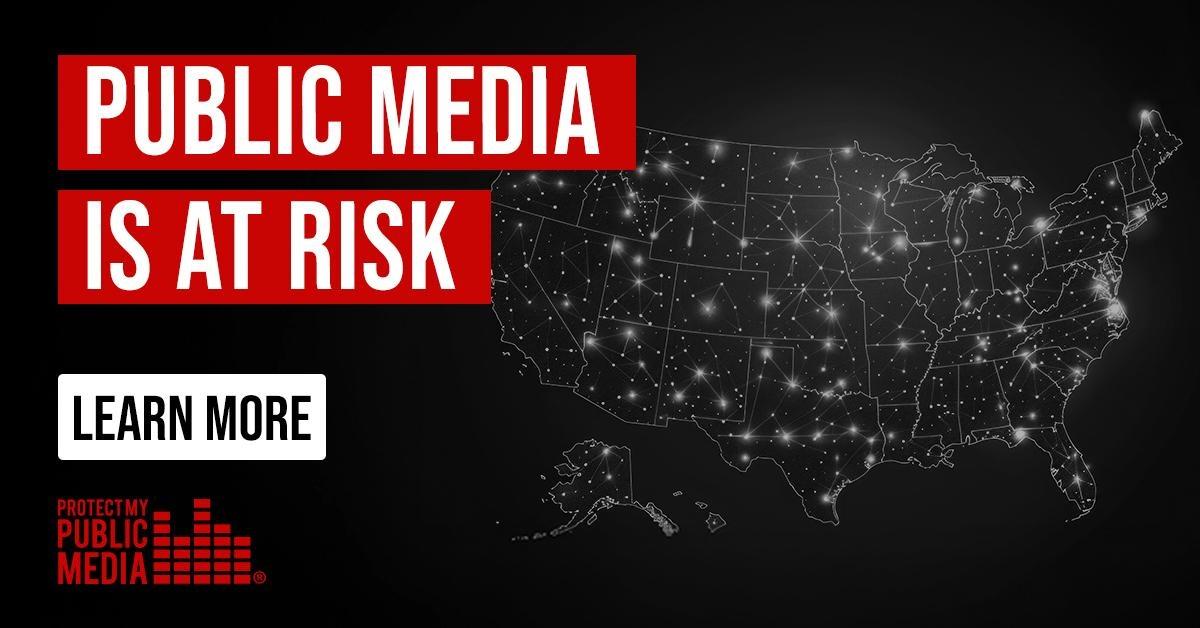NOTE: This post was originally shared by Brian Frank on his own personal blog, where he frequently discusses music and his own personal experiences. He has kindly allowed us to share it here as well.
In the fall of 1974 I arrived at the age of eight in the small town that would help shape the person I am today. Because of details that aren’t relevant to this post I arrived without my father. He was hundreds of miles away, which meant that I could have went through that critical period of growing up when values and acceptable behavior get communicated to a young person. I might have gone without proper guidance if it weren’t for a lot of people who stepped up and filled the role and created a collective father figure that taught me how to hopefully be a responsible citizen. Along with my grandfather, people in that town who served as role models included teachers, administrators, local officials, coaches and fathers of my friends. But plenty of women impacted me in a positive way as well, among them teachers and the mother of a girl I dated. If any lessons didn’t get absorbed right away, it can only be attributed to the recipient being immature. As I’ve thought about it, I don’t know if any of these people were aware of the role that they were playing when they were doing this for me. I only know that whenever I’ve failed to live up to the standards they established and when I’ve done good things that I’ve thought of them and been grateful for the impact they had on my life. I truly know what it was like to be raised by a village, and one of the biggest lessons those particular people in that village taught me was to treat everyone with respect. So when my village, the town that had done so much for me, was name-checked in association with something ugly in my presence, it troubled me. Let me try and explain.
When some members of the staff of Panhandle PBS were given the green light to return to our offices late last summer, we started working on ideas for the 3rd season of our locally produced television show The Handle. In the past, our show has done feature stories on different people who live and work in the Texas Panhandle. We’ve also expanded our reach - I’ve spent memorable days with our team covering Bob Wills Day in Turkey, and early one morning last year (pre-pandemic) we left Amarillo around 3 a.m. so we could be in position at sunrise to capture the flight of Sandhill Cranes outside of Muleshoe. We’ve also covered serious news topics, but The Handle has always been about people. We knew with limitations due to COVID, we wouldn’t be able to travel and cover stories as usual. We also sensed that the reactions to the death of George Floyd had impacted our community. We could have played it safe and made our 3rd season all about how the pandemic has affected us, and I’m certain we would have created meaningful content. Instead, we went in a different direction and began setting up our studio to conduct interviews for the season we’ve titled Living While Black.
Over the next few weeks, we recorded interviews with 25 area residents, most of them Black and many of them community leaders including those who work in law enforcement. We asked them many questions, including what the word racism means to them, and about any instances when they’d experienced it directed at them. We ended up with over 30 hours of footage from which to put together six episodes of our show. No spoilers – the first episode premieres March 11th, and I want you to watch. But two of our interview subjects named my hometown as one where they had experienced racism. One had racial slurs yelled at him from spectators near the fence while playing high school football years ago. The other received the same verbal abuse this summer after participating in one of the peaceful protests that occurred immediately following the death of George Floyd. To the best of my knowledge, no mention of those incidents will make the final cut of our show. Sadly, that’s because what happened to those two people is pretty common. Plus, we heard even worse things in the interviews. A link to more details about Living While Black is at the bottom of this page.
As troubling as it was to hear my hometown mentioned in that way, I wasn’t surprised. No, I don’t think my hometown is full of racists and I really believe that the larger city in which I live now is pretty much a bigger version of that town, filled with a generous spirit among neighbors who are willing to help each other no matter what and are generally friendly to everyone. I also have enough experience to know that as special a place as it is to me, it’s like many in this area which means I know that there are people who live just about everywhere who think it’s ok to think of others as somehow less than them and use words to demean them. The exposure to those words comes at a young age. You can argue that even if they are ugly words they are still just words, but language helps cultivate a worldview that when coupled with the speed and methods of communication available today can have consequences that help to keep us from coming to terms with an issue that we know is never going to solve itself.
According to Pex, which helps creators and rights holders audit, measure and monetize their audio and visual intellectual property across the web, it’s estimated that in the 10 days following the death of George Floyd (May 25 – June 4, 2020) videos on Twitter regarding race or Black Lives Matter related videos were watched over 1.4 billion times. Fast forward ten months, as jury selection in the trial of Derek Chauvin, the former Minneapolis police officer accused in the death of Floyd, is set to begin, and it seems that opinions on the killing and more importantly, race, have shifted. According to a USA Today/Ipsos poll, 60% of those surveyed last June described Floyd’s death as murder, and today that number has dropped to 36%. Along racial lines among those surveyed, the disparity is even more clear – today nearly 64% of Black people see Floyd’s death as murder compared to 28% of white people. While no factual information has changed, what has mattered is the effectiveness of communicating a message, or controlling the space. George Floyd received so much attention last year, but his death was not the only one that fueled the movement for social justice. Ahmaud Arbery, who was shot and killed by two white men while jogging, and Breonna Taylor, who was killed in her own apartment by three plainclothes police officers investigating a drug dealing operation, must also be mentioned as catalysts. There’s also a common thread to those three deaths that goes beyond the color of the victims’ skin.
The concept of victim shaming/blaming goes back a long time and ultimately suggests that whatever tragic event someone suffered, they somehow contributed to it because of something that they did. It often happens shortly after the investigation of a crime begins. The addition of social media exposure made it easier to do and also exposes a pattern in the Floyd, Arbery and Taylor cases. Immediately following each of their deaths, a generally universal outpouring of sadness mixed with outrage was expressed. However, certain broadcast outlets and websites were quick to dig into each of the victim’s respective pasts and discover things about them that devalued them. George Floyd had a criminal record, which made him an easy target. Ahmaud Arbery had been caught on camera entering a home under construction, even though that’s not considered a criminal offense. Breonna Taylor’s address was connected to a warrant by an ex-boyfriend under investigation, although that address was never searched for drugs or money. But in the court of public opinion, evidence is not necessary as long as there’s a way to cast doubt on someone’s character. If that doubt causes distraction long enough, then another story will come along and the outrage of these events fade in the collective public’s consciousness. Then, only the protests and the bad things that happen there get remembered. It’s also a lot easier to believe bad things about someone if you’ve grown up hearing them called ugly names. As I said, my town’s not that different from any place I’ve travelled. In those 50 plus years of travels I’ve discovered that straight white men have a whole arsenal of degrading names for anyone who’s not a straight white man. If someone grows up with those beliefs, it becomes really easy to justify victim shaming or do anything else to make someone feel less valued because of their skin color.
A couple of disclosures: I’ve never watched the entire George Floyd video. I couldn’t make it through it. The content producer of our show who’s done so much of the hard work on our show has, and so have other members of our team. I know it affected them. Also, we do not show video footage of Mr. Floyd’s death in our program, and that is intentional. While his death was what ultimately led us to this project, we did not want to exploit it and force the viewing of it on our audience. Just knowing that it happened should be enough. Finally, our show falls in line with but is not directly connected to an initiative by Amarillo College designed to make our college one that is anti-racist. As we learn the details of what that means, I know as a college we will accomplish it with the same method we have provided our students ways to fight poverty while they have worked toward their educational goals – by making it our focus and working together. We know that the more connected and more educated our community, the stronger it is and the more that everyone in it can benefit.
To start us in the right direction, our college faculty and staff have been invited to read and discuss Bryan Stevenson’s Just Mercy. I found the book to be a tough but rewarding read. Many things in it stayed with me, but in particular this passage: “Each of us is more than the worst thing we’ve ever done”. Stevenson isn’t just talking about the poor and incarcerated, and while the challenge of making real progress on defeating racism is daunting, we can’t shy away from that challenge. There’s no better time than now, because communication technology exists that allowed the world to witness the death of a Black man in almost real time. That technology also allows us to see every reaction and response to it as well. It feels like doing nothing is the worst thing we could do.
If hearing these stories made me give more thought to racism, with a couple adding a personal location, one of our interview subjects provides the best reason I can think of to become involved. I’m paraphrasing, but she says she has children and grandchildren, and that they deserve more. Her comments reminded me that two days after the death of George Floyd, I was riding bikes with my two teenagers. I asked both of them if they knew about what happened, and they both said they did. My son rode ahead and my daughter and I continued to talk. It amazes me how much more aware of the world she is than I was at her age. She not only knows that she has friends who look, love and worship differently than she does, but she embraces those differences and is protective of them. Her question to me that day was “Why did they have to do that?”. It’s frustrating that I didn’t have an answer for her then and don’t have one now. It will bother me more if something like this happens again (and history says it will) and she asks “Why didn’t anybody do anything?”
Even having the right reasons to and being in for however I can, I still have no specific idea of how I can help. But there are a few things of which I’m pretty sure. I’m pretty sure this is too long, and there’s even more I could have included. I’m pretty sure that nothing I write about race could affect you in the same meaningful way that the stories our crew heard would. I’m pretty sure that there’s probably someone you know that has a story that could affect you and make you want to help. Finally, I’m pretty sure that the only way to begin that process is to have conversations, and in these likely difficult conversations the most important job is to listen. We have to listen.
Your musical reference is connected to current events and the spirit of this blog. A few weeks ago, Country music singer Morgan Wallen seemingly had his career derailed when footage of him using a racial slur was posted on social media. The music and radio industries reacted swiftly, immediately pulling Wallen’s music from playlists nationwide on radio and streaming services as well as removing his eligibility from all upcoming award ceremonies. Several artists in the Country and Americana genres called out Wallen’s behavior as unacceptable, and backed the penalties levied against him. Wallen quickly issued what felt like a standard press-release type of apology, and then something happened that I can’t comprehend – his album sales went up astronomically, to the point where his album was the number one album for at least 7 weeks in a row. There’s a whole other blog or even a book that could be written on “cancel culture”, but I’m not sure where to begin.
One element of Wallen's story gives me hope: one song on the album, “Cover Me Up”, was written by Jason Isbell. Isbell is an independent Americana artist, and he and his wife Amanda Shires are among the most critically acclaimed writers in music today. The four-time Grammy winner has a loyal following but right now it’s not possible for Isbell to tour to support his latest album and make money that way. As a songwriter, the royalties from a song on the album of an artist on a major label selling so well would benefit him financially at a time when he could probably use it. However, once the inexplicable increase in sales started happening, Isbell issued a statement announcing he would donate all those songwriting royalties to the Nashville chapter of the NAACP. The president of that chapter has offered to meet with Wallen. Such a gesture is not out of character for Isbell, who writes directly and effectively about difficult subjects. His 2017 album “The Nashville Sound”, recorded with his band The 400 Unit, contains songs that look through the eyes of a man with a young daughter and wanting what so many of us want – a better world. That approach applied to racism can be heard by clicking the link below to the song “White Man’s World”.






